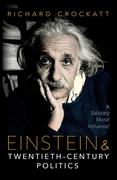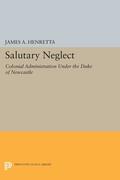30 Results for : salutary
-
The Stream of Everything (eBook, ePUB)
It's summer, and John Connell finds himself, like so many others, confined to his local area, the opportunity to freely travel and socialise cut short. His attention turns to the...- Shop: buecher
- Price: 18.95 EUR excl. shipping
-

The Georgics , Hörbuch, Digital, ungekürzt, 197min
Virgil's Georgics ranks as one of the most precious pastoral poems ever written, and it has served as a model for its type ever since. Georgics means "of or relating...- Shop: Audible
- Price: 9.95 EUR excl. shipping
-

Jeremy Hardy Feels It: The BBC Radio 4 Comedy, Hörbuch, Digital, 111min
Jeremy Hardy returns with a brand-new series that not only seconds that emotion but explains it, too. Yes, BBC Radio 4's most passionate polemicist returns to the airwaves with a...- Shop: Audible
- Price: 9.95 EUR excl. shipping
-

Relaxation and Harmony - Progressive Muscle Relaxation, Hörbuch, Digital, 75min
The progressive muscle relaxation, also knows as PMR, is a relaxation technique, developed by the US american physician Edmund Jacobsen (1888-1983). He discovered, as a result of his scientific studies,...- Shop: Audible
- Price: 9.95 EUR excl. shipping
-

The Great Transformation: The Beginning of Our Religious Traditions , Hörbuch, Digital, ungekürzt, 1349min
From one of the world's leading writers on religion and the highly acclaimed author of the best-selling A History of God, The Battle for God, and The Spiral Staircase, comes...- Shop: Audible
- Price: 9.95 EUR excl. shipping
-

Three Essays on the Theory of Sexuality, Beyond the Pleasure Principle, The Ego and the Id , Hörbuch, Digital, ungekürzt, 527min
Here are three key works by Sigmund Freud which, published in the first decades of the 20th century, underpinned his developing views and had such a dramatic effect on world...- Shop: Audible
- Price: 9.95 EUR excl. shipping
-

Theology and Culture
Description: How can we speak about God without assuming that God is nothing but our own speaking, nothing but our culture's effort to name what cannot be named? How can...- Shop: buecher
- Price: 16.99 EUR excl. shipping
-

Einstein and Twentieth-Century Politics
Einstein and Twentieth-Century Politics - 'A Salutary Moral Influence': ab 36.99 €- Shop: ebook.de
- Price: 36.99 EUR excl. shipping
-

Salutary Neglect
Salutary Neglect - Colonial Administration Under the Duke of Newcastle: ab 55.49 €- Shop: ebook.de
- Price: 55.49 EUR excl. shipping
-
12 Etudes/Masques/4 Etudes/Metopes
Szymanowski's most celebrated works have been recorded here. The early 4 Etudes include the popular "Andante in modo d'una canzone", a sorrowful song above slow repeated chords. The rest of...- Shop: odax
- Price: 16.26 EUR excl. shipping
